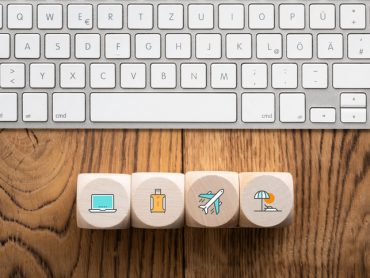IE7: Rest in Peace
As an operator of an agency that helps create new websites for hotels, it irks when my hotelier clients sound the alarm over site-related errors in Internet Explorer version 7 (IE7). Yes, a website should be perfect across all platforms. But, is it enough to delay a major and potentially revenue increasing website update or re-launch?
Launched in late 2006, IE7 soon became the mainstay browser for computer terminals in hotels. It’s what many back-end departments like sales and marketing use to access the company’s own websites. But a lot have changed since 2006 and you’d be hard-pressed to find a consumer who still uses this platform.
Let’s review some facts. Although Internet Explorer still holds a substantial and significant share of the web browser market, IE7 represents 5% at the high end of estimates. In reality, it’s more like 2%. And if you assess it on a month-to-month basis, you’d immediately notice a gradually declining trend line. A quick Google search should point you towards several credible aggregator websites that can elucidate these metrics.
Moreover, Internet Explorer usage in general (that is, across all versions) is showing a downward trend line. Firefox represents another large piece of the pie and Google Chrome seems to be taking the lead with Safari and Opera holding steady in low percentages. Getting back to IE7, it’s also pertinent to note that the software is a defunct iteration and since the launch of the Windows 7 operating system in 2009, IE8 and IE 9 have been the standard pre-install browsers.
Regardless of statistics that confirm its unpopularity and obsolescence, IE7 is just a pain for programmers to work with. Its functionality and plugin integration are far inferior to IE8, IE9 or other product lines. Programmers hate it, citing mind-numbing translations from other browsers and superfluous code requirements as reasons. Net: as a hotelier, it costs you more to build a site that is compatible with IE7 because it takes more coding time to create.
So, why do we care about how a website looks on IE7? Is it what our consumers actually use, or is it just what’s offered on some protected computer terminal in the hotel’s management office?
As stated above, a website should look beautiful across all platforms, but there comes a point where you have to cut your losses. An e-commerce error in Chrome is a scenario that would get me calling the private cell phones of web programmers at midnight on a Saturday. But the same error in IE7? Why bother! IE7 is such a quagmire that trying to fix the problem will only reveal or cause additional headaches with other browsers.
I hope that this brief harangue is enough for you to realize that it’s time to lay IE7 to rest, and for good. With IE10 coming out soon, IE7 will soon fall from partially to totally negligible usage percentages. As hoteliers, your limited time is being yanked in so many different directions that the last thing you need is to worry about are problems with an antiquated software. Just forget about it and save your energy for the bigger picture (that is, real browsers).
Last note: for those who are still worried about IE6 compatibility, I suggest you look at replacing your 56.5 baud, dial-up modems as well.
(Article published in eHotelier on July 17, 2012)
The image is a logo owned by Microsoft.




